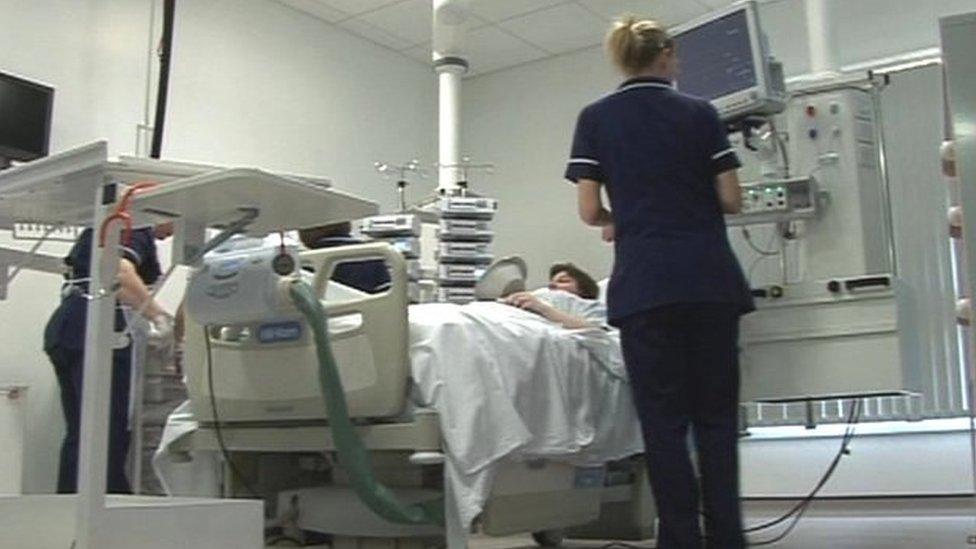Coronavirus: Wales 'uniquely at risk' with lack of ICU beds
- Published
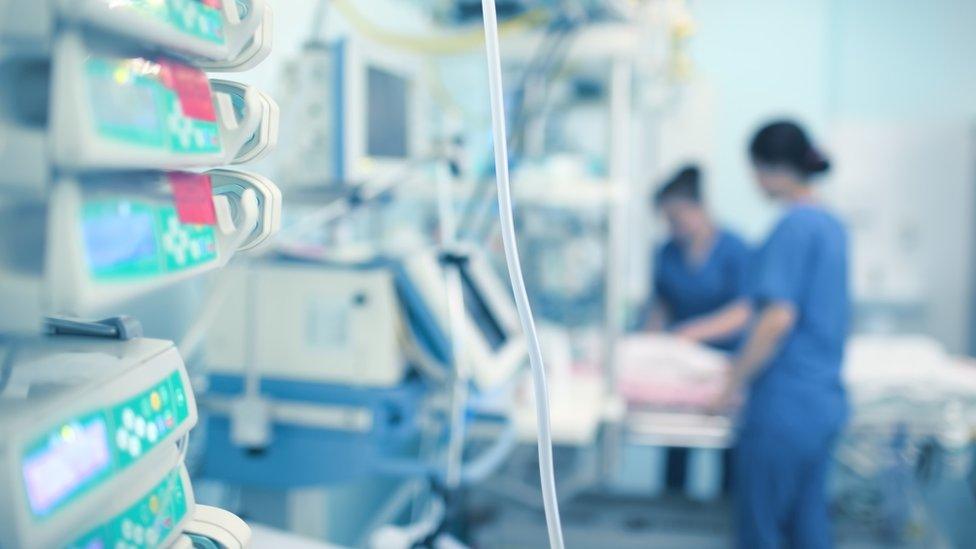
Wales is "uniquely at risk" if there is a surge of very sick people with coronavirus, a senior intensive care consultant has warned.
Dr Jack Parry-Jones is concerned at the supply of beds and staffing, because critical care units normally work at more than 90% capacity.
He is worried about the impact if demand here became as high as in Italy.
The Welsh Government said "surge plans were in place to increase the availability of critical care".
Dr Parry-Jones, an intensive care consultant in Newport and Cardiff, has said health boards could convert operating theatres into temporary intensive care units
"It's a lull before the storm - and we can see the dark clouds gathering," said Dr Parry-Jones, who is a Welsh board member for the Faculty of Intensive Care Medicine.
A lot of work has been put in, on how health boards would increase their supply, but for us we're still concerned about the supply of beds at this stage.
"We know in Wales we have fewer critical beds than the rest of the UK, and the UK has fewer than many countries in Europe. So that puts us more uniquely at risk of any surge in demand when we don't have enough supply.
"A lot of work has been put in, on how health boards would increase their supply, but for us we're still concerned about the supply of beds at this stage."
He said in normal working conditions, most critical care units run at more than 90% capacity so any increase in demand puts extra pressure on.
In the past, such as in 2009-10 with swine flu, units were operating at well over 100% capacity which meant patients received critical care outside critical care units.
What could be done to meet a surge in demand?
Cutting back on routine surgery
Operating theatres and recovery areas converted to take critical care patients
Specialists like anaesthetists, who have critical care skills, could be used as part of bringing in extra staffing, and nurses with intensive care experience could be brought back
Dr Parry-Jones would also like to see more central coordination of the message coming out
Ensure an adequate stock of personal protective equipment and oxygen supplies
Dr Parry-Jones told BBC Wales every health board would have plans to increase capacity and also how to separate intensive care patients who were infected and those who weren't.
"We're used to dealing in surges of demand," he said.
"What's concerning us is the situation in, particularly Italy. It's a European country, we know their critical care capacity is a lot higher than Wales and they are still having a big problem with demand."
Specialists in Wales' critical care network will be holding a special meeting on the virus on Wednesday.
What is the demand for critical care at the moment?
Usually only about 9,600 patients need intensive care facilities every year in Wales.
But NHS Wales has a lower number of critical care beds for the size of the population than the rest of the UK
A growing and ageing population means demand for critical care rises by about 4-5% each year.
There were 176 critical care beds in 14 hospitals which have critical care units (in 2016) - and they cost £102m a year to run.

How busy can they get?
In 2018-19, on average, 153 beds were available on a daily basis - up by more than a third on nine years ago.
But this doesn't tell the whole story.
In 2018, 40% of units had to close beds due to staffing shortages on at least a weekly basis, resulting in a fill rate of 95%.
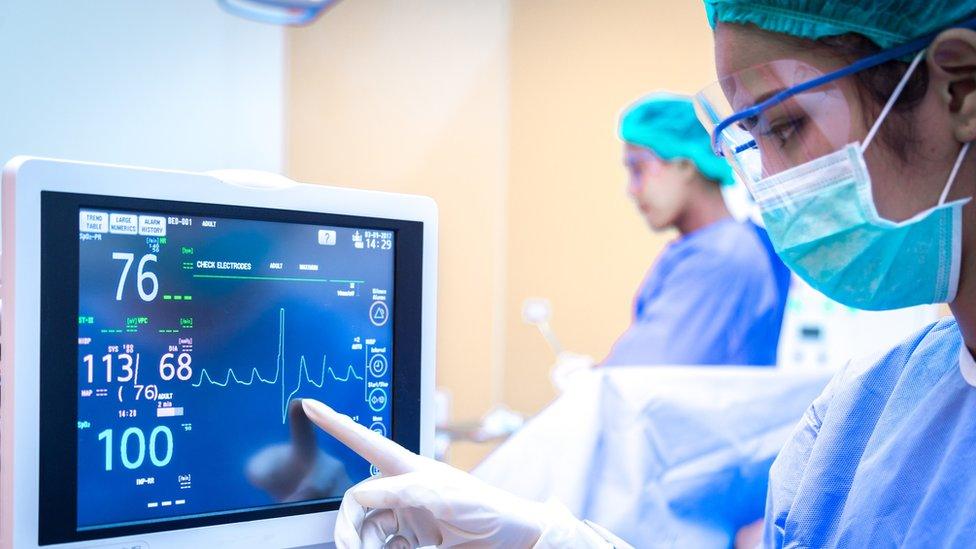
What has been going on to improve things?
A task and finish group reported in 2019, calling for improvements, backed up by an additional £15m recurrent funding from Welsh Government.
Among recommendations were:
Seven additional beds in Aneurin Bevan health board
13 additional beds in Swansea Bay
7.5 extra beds in Betsi Cadwaladr
24 extra beds in Cardiff and Vale
Two more beds in Cwm Taf
The health minister said last year it was about "skilling up the staff we currently have as well as the additional staff we need to bring in to deliver the capacity that we want to deliver".
But Dr Parry-Jones said staffing was still an issue and up-scaling critical care was "time consuming and expensive".
It is not just about doctors as seven nurses are needed to staff each critical care bed, he added.
'Take the lead'
He said on a medical level, critical care staff were well trained and used to dealing with the sort of illnesses which coronavirus can cause but this was more to do with how much time would be spent managing the practicalities of a surge in cases.
Meanwhile, Plaid Cymru leader Adam Price said that "even under normal circumstances" the health service did not have enough "critical care capacity" and Covid-19 was putting "further pressures" on the health system.
He said Wales should "take the lead" by planning ahead rather than waiting on the UK government or "waiting for the worst to happen".
A Welsh Government spokesman said: "As the number of cases increase, care will be provided in the most clinically appropriate setting. We expect most cases will be treated in their own home.
"For more acute cases, plans are in place for hospitals to accept patients into isolation facilities and surge plans are in place to increase the availability of critical care."
- Published10 March 2020
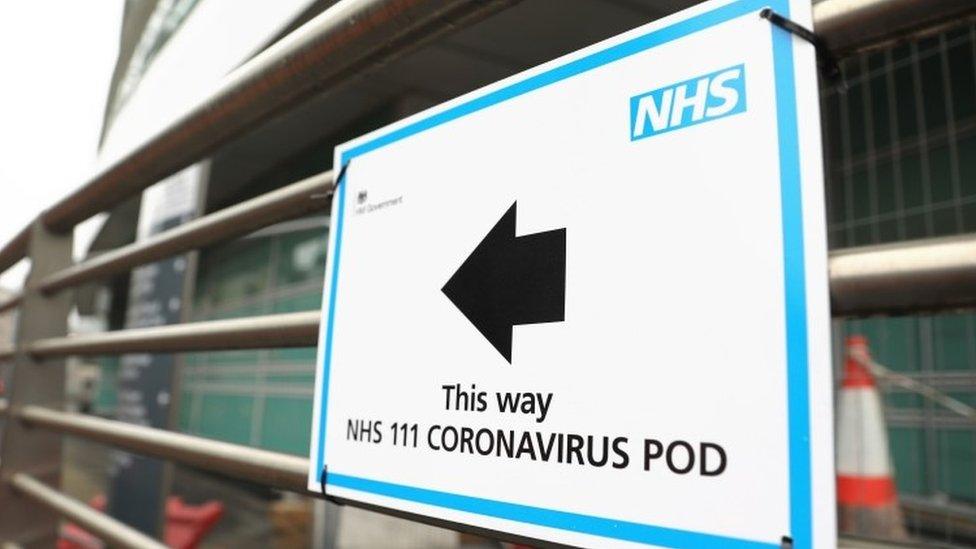
- Published10 March 2020
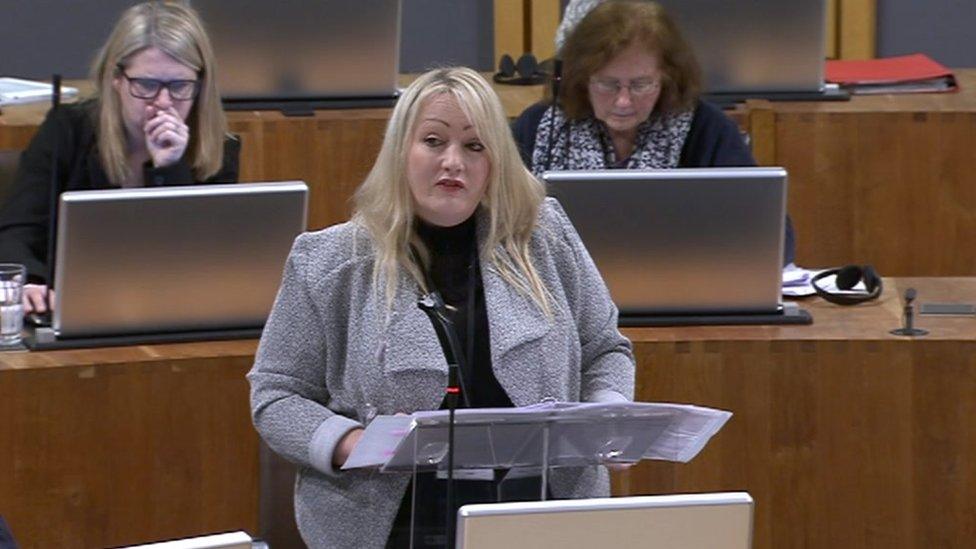
- Published26 August 2016
